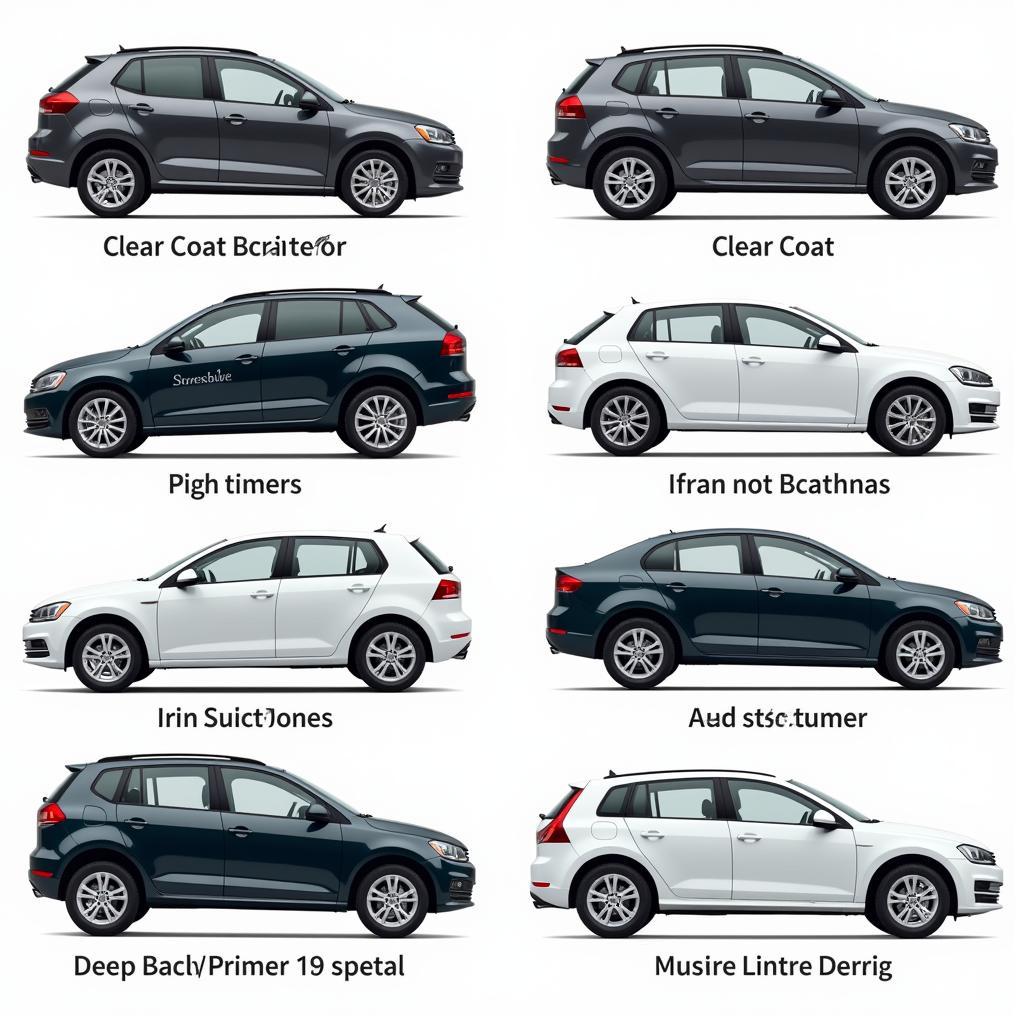Car maintenance is crucial for ensuring the longevity, safety, and optimal performance of your vehicle. This Car Maintenance Wiki provides a comprehensive guide to essential maintenance tasks, troubleshooting tips, and answers to frequently asked questions. Whether you’re a car owner, a mechanic, or an automotive technician, this resource aims to empower you with the knowledge to keep your car running smoothly.
Understanding the Importance of Regular Car Maintenance
Regular maintenance isn’t just about keeping your car clean; it’s about preventing costly repairs down the road. Neglecting routine checks can lead to significant problems, impacting your car’s reliability, fuel efficiency, and even its resale value. Think of it as an investment – a small amount of time and money spent on regular maintenance can save you a lot of hassle and expense in the long run.
Essential Car Maintenance Tasks: Your Car Maintenance Wiki Guide
This car maintenance wiki wouldn’t be complete without a detailed guide to the most crucial maintenance tasks. Let’s dive into the essentials:
Oil Changes: The Lifeblood of Your Engine
Oil changes are arguably the most important aspect of car maintenance. Fresh oil lubricates your engine’s moving parts, reducing friction and preventing wear and tear. Check your owner’s manual for the recommended oil change intervals, but a general rule of thumb is every 3,000-5,000 miles for conventional oil and 7,500-10,000 miles for synthetic oil.
Tire Rotations and Pressure Checks: Keeping You Rolling Smoothly
Proper tire maintenance ensures optimal handling, fuel efficiency, and tire lifespan. Rotate your tires every 5,000-8,000 miles to promote even wear. Also, regularly check your tire pressure, as under-inflated tires can reduce fuel economy and increase the risk of blowouts.
Brake Inspections: Ensuring Your Safety
Your brakes are critical for your safety. Have your brakes inspected at least once a year or if you notice any unusual noises or performance issues. This typically involves checking the brake pads, rotors, and brake fluid.
Fluid Top-Offs: Keeping Everything Running Smoothly
Your car relies on various fluids, including coolant, brake fluid, power steering fluid, and transmission fluid. Regularly check these fluid levels and top them off as needed. Low fluid levels can indicate leaks or other problems that require attention.
Troubleshooting Common Car Problems
Even with diligent car maintenance, problems can still arise. This car maintenance wiki offers some tips for troubleshooting common car issues:
- Car won’t start: Check the battery, starter, and alternator.
- Engine overheating: Check the coolant level and the cooling system components.
- Strange noises: Identify the source of the noise and consult a mechanic.
- Warning lights: Refer to your owner’s manual to understand the meaning of the warning light.
Car Maintenance Wiki: Expert Insights
John Stevenson, a seasoned automotive engineer with over 20 years of experience, emphasizes the importance of preventative maintenance: “Regular car maintenance is like brushing your teeth. It might seem tedious, but it prevents bigger problems down the line.” He also advises car owners to “familiarize themselves with their car’s owner’s manual, as it’s a valuable resource for understanding specific maintenance requirements.” Another expert, Maria Rodriguez, a certified mechanic, adds, “Don’t ignore warning signs. Addressing small issues early on can prevent them from escalating into major repairs.”
Conclusion
This car maintenance wiki has provided a comprehensive overview of essential car maintenance tasks and troubleshooting tips. By following these guidelines, you can keep your car running smoothly and extend its lifespan. Remember, regular car maintenance is an investment in your car’s health, your safety, and your wallet. For personalized assistance or if you have any questions, feel free to contact us at AutoTipPro at +1 (641) 206-8880. Our office is located at 500 N St Mary’s St, San Antonio, TX 78205, United States. We’re here to help!
FAQ
- How often should I change my car’s oil? Refer to your owner’s manual for specific recommendations.
- What should I do if my check engine light comes on? Get your car diagnosed by a qualified mechanic.
- How can I improve my car’s fuel efficiency? Ensure proper tire inflation, regular maintenance, and avoid aggressive driving.
- What are some signs that my brakes need to be replaced? Squealing noises, grinding sounds, or a spongy brake pedal.
- How often should I rotate my tires? Every 5,000-8,000 miles.
- What fluids should I regularly check in my car? Coolant, brake fluid, power steering fluid, and transmission fluid.
- Where can I find reliable car maintenance information? This car maintenance wiki is a great resource, as well as your car’s owner’s manual.





Leave a Reply